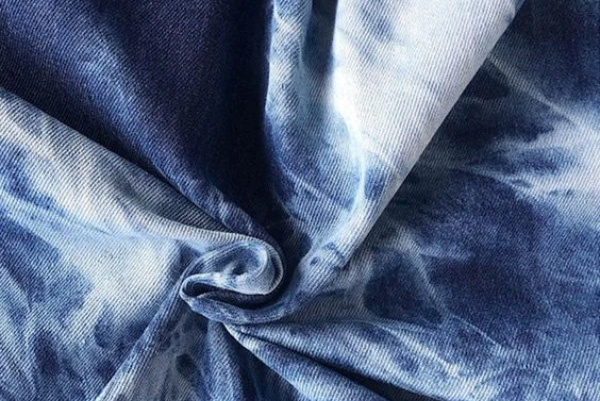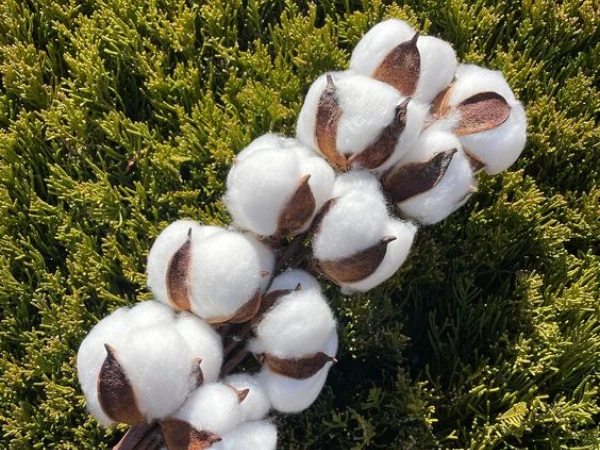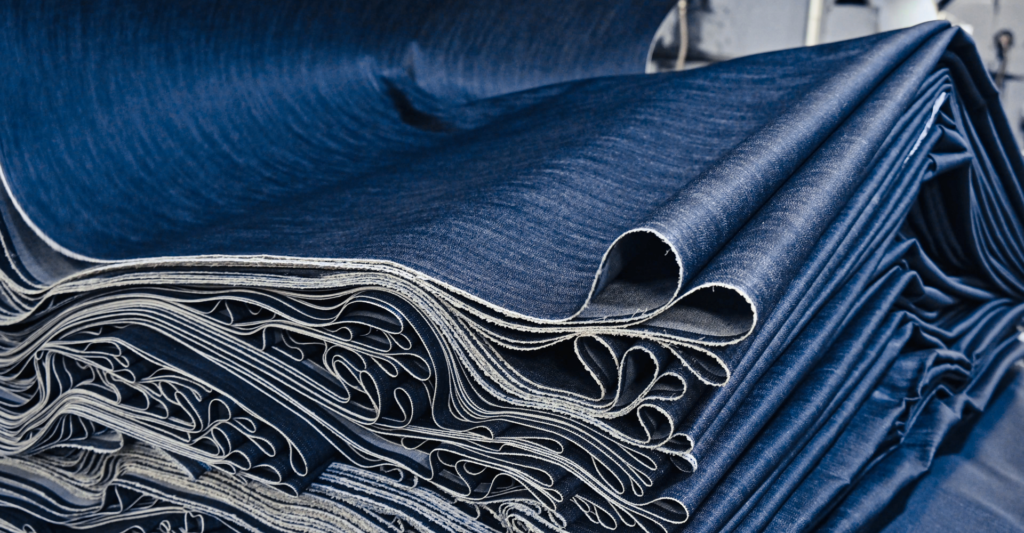Decoding Denim: Is 100% Cotton True Full Cotton In Denim Fabric?
Discover the truth behind the label with our in-depth guide on "Is 100% Cotton True Full Cotton in Denim Fabric?" Find out if your favorite jeans are genuinely all-natural cotton or if there's more to the story. Learn the differences between genuine 100% cotton denim and blended fabrics, and how to spot the real deal. Shop confidently for pure, high-quality denim with our expert tips and insights. #PureCottonDenim #AuthenticDenim #DenimFabricGuide

Introduction
The denim fabric has been a staple in the fashion industry for decades, known for its durability, versatility, and timeless appeal. However, with the increasing demand for sustainable and high-quality materials, the question arises: Is 100% cotton denim fabric truly full cotton in the market? In this article, we will delve into the intricacies of 100% cotton denim, understanding its significance and the need to differentiate between true full-cotton denim and blended denim.
Understanding 100% Cotton Denim Fabric
- What does 100% cotton denim mean?
When denim is labeled as 100% cotton, it signifies that the fabric is composed entirely of cotton fibers without any synthetic or blended materials. This pure cotton composition is valued for its breathability, comfort, and ability to develop unique fading patterns over time, making it a sought-after choice for denim enthusiasts.
- Differentiating between true full cotton denim and blended denim
True full cotton denim refers to denim fabric that is exclusively made from cotton fibers, ensuring a natural and authentic denim experience. On the other hand, blended denim incorporates a mix of cotton and synthetic fibers, altering the fabric’s characteristics and performance. Understanding this distinction is crucial for consumers seeking genuine 100% cotton denim products.
The Market for 100% Cotton Denim
- Challenges in identifying genuine cotton denim
In today’s market, one of the primary challenges in identifying genuine 100% cotton denim lies in the complexity of the supply chain. With multiple intermediaries involved in the production and distribution of denim fabric, the transparency of the sourcing and composition of the fabric can be obscured. This opacity can make it difficult for consumers to ascertain whether the denim they are purchasing is indeed true full cotton. Additionally, the lack of standardized labeling and certification practices further compounds this challenge, leaving consumers vulnerable to misleading claims.
Practical Example: A consumer purchases a pair of jeans labeled as 100% cotton denim, only to discover through research that the fabric contains a blend of cotton and polyester, highlighting the prevalence of mislabeled denim products in the market.
- Common misconceptions about 100% cotton denim
Misconceptions surrounding 100% cotton denim often stem from a lack of awareness about the intricacies of denim production. Some consumers may assume that any denim labeled as 100% cotton automatically guarantees the authenticity of the fabric. However, this oversimplification overlooks the nuances of denim manufacturing and the potential for misrepresentation in the market.
- Some recycled cotton and re-produced denim fabric, but called 100% cotton also
Another factor contributing to the complexity of the 100% cotton denim market is the emergence of recycled cotton and re-produced denim fabric. While these materials may indeed be predominantly composed of cotton, their recycled or re-produced nature introduces a layer of ambiguity when it comes to labeling and categorization. Some denim products made from recycled or re-produced cotton may still be labeled as 100% cotton, blurring the distinction between true full cotton denim and these alternative variations.
Practical Example: A denim brand launches a line of jeans made from recycled cotton, marketing them as 100% cotton denim to emphasize their sustainable and eco-friendly attributes. This scenario underscores the need for consumers to critically evaluate the composition and authenticity of denim products labeled as 100% cotton.
Factors Affecting the Quality of 100% Cotton Denim
- Types of cotton used in denim production
The quality of 100% cotton denim is influenced by the type of cotton utilized in its production. Premium denim often incorporates long-staple cotton varieties such as Pima or Egyptian cotton, renowned for their strength and softness, resulting in superior denim fabric.

- Production processes and their impact on denim quality
The methods employed in denim production, including weaving techniques, dyeing processes, and finishing treatments, significantly affect the quality of 100% cotton denim. Attention to detail and adherence to traditional craftsmanship contribute to the authenticity and durability of true full cotton denim.
Practical Example: A renowned denim brand emphasizes the use of organic, sustainably sourced cotton and implements eco-friendly dyeing methods, reflecting a commitment to producing high-quality 100% cotton denim while minimizing environmental impact.
- Quality standards for 100% cotton denim
Establishing clear quality standards for 100% cotton denim is essential in ensuring transparency and reliability within the denim market. Industry certifications and regulations play a pivotal role in verifying the authenticity of true full cotton denim products, providing consumers with confidence in their purchases.
How to Identify True Full Cotton Denim
- Labeling and certifications for authentic 100% cotton denim
Consumers can look for specific certifications and labeling, such as the OEKO-TEX Standard 100 or GOTS (Global Organic Textile Standard), which validate the purity and organic nature of 100% cotton denim. These indicators serve as a guide for discerning genuine full cotton denim from misleading alternatives.

- Physical characteristics of true full cotton denim
True full cotton denim exhibits distinct physical attributes, including a natural, slightly irregular texture, and a breathable, soft feel. By familiarizing themselves with these characteristics, consumers can differentiate between authentic 100% cotton denim and blended denim variations.
- Price comparison and value assessment
While price alone does not guarantee the authenticity of 100% cotton denim, it can serve as a reference point for assessing the value of denim products. True full cotton denim, particularly when crafted with premium cotton and meticulous attention to detail, may command a higher price reflective of its quality and authenticity.
Practical Examples and Case Studies
- Comparison of true full cotton denim products with blended denim
A side-by-side comparison of true full cotton denim and blended denim products can elucidate the differences in texture, durability, and aging characteristics. Through this comparison, consumers can witness firsthand the unique qualities of 100% cotton denim and make informed decisions based on their preferences.
- Consumer experiences with 100% cotton denim products
Gathering feedback and testimonials from consumers who have purchased and worn 100% cotton denim products provides valuable insights into the performance and satisfaction derived from true full cotton denim. These real-life experiences offer practical guidance for individuals navigating the complexities of the denim market.
Conclusion
In conclusion, the quest to discern whether 100% cotton denim is true full cotton in the market is a journey marked by careful consideration and informed choices. By understanding the nuances of 100% cotton denim, recognizing the factors influencing its quality, and employing practical methods to identify true full cotton denim, consumers can confidently navigate the denim landscape and embrace the authenticity of pure cotton denim. In doing so, they contribute to the preservation of traditional craftsmanship and the appreciation of genuine, high-quality denim products.
Global logistics
It can be shipped worldwide
About the MOQ
Minimum order quantity of 200 pieces
Support 24/7
Call us:(+86)136 6980 8954
Free sample
200 pieces MOQ Free sample







Customized product message